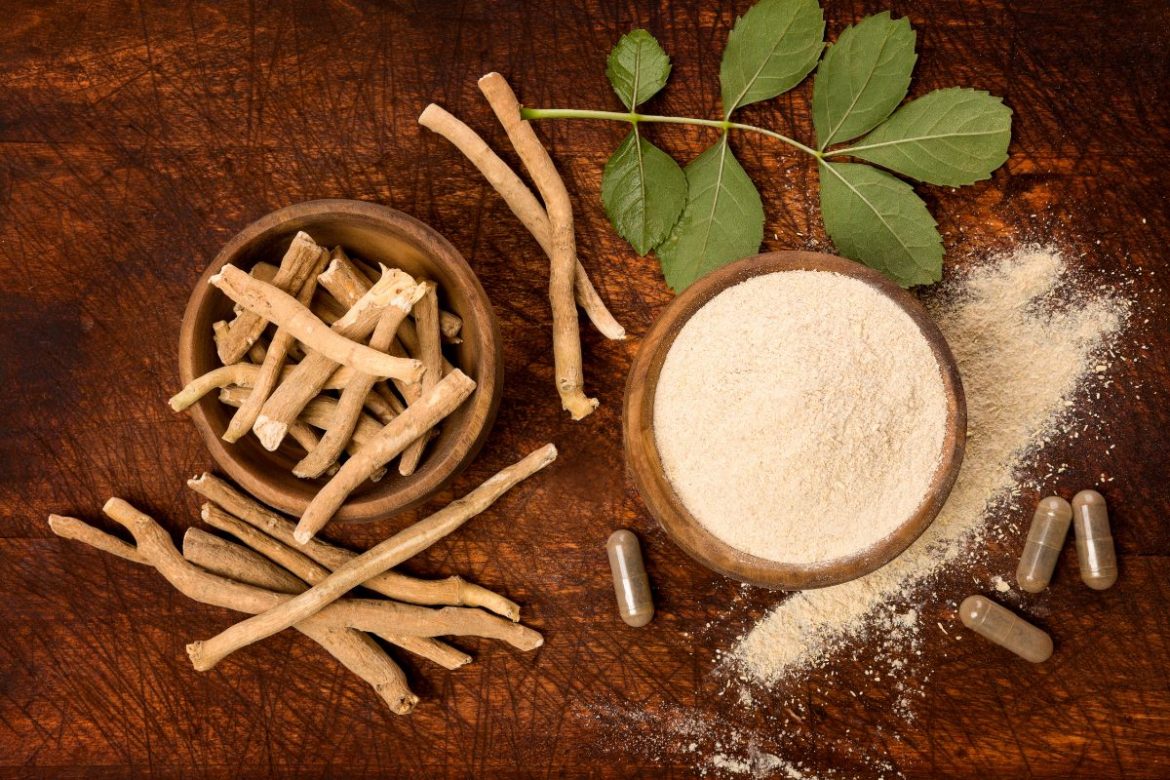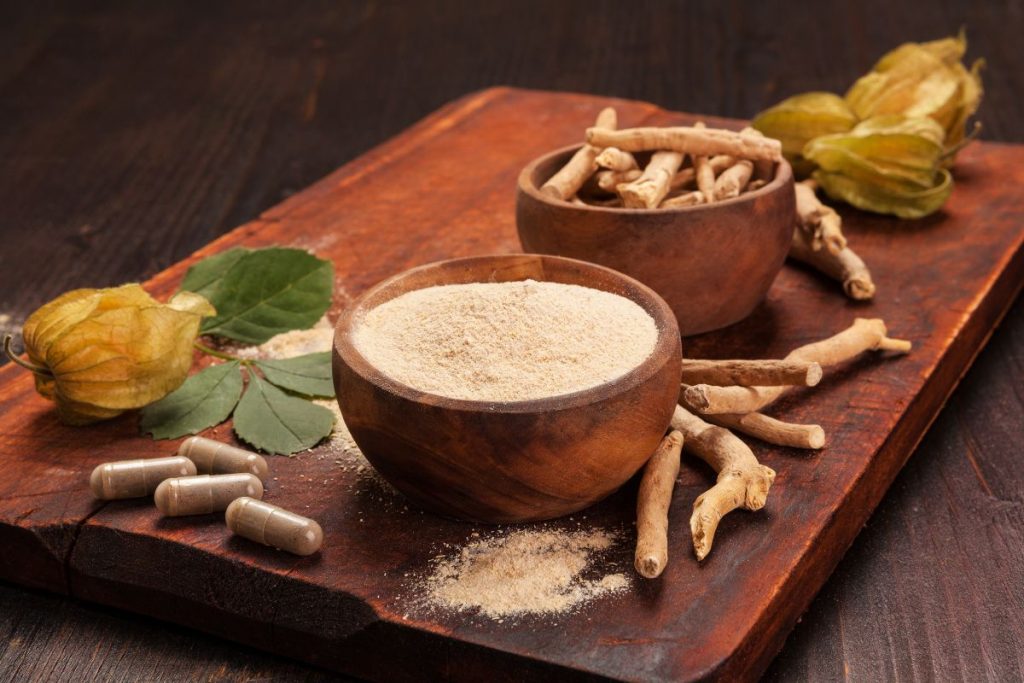Ashwagandha is one of the trending products on social media right now and has become extremely popular around the world in recent years. Ashwagandha, scientifically known as Withania somnifera, is a small shrub native to India and North Africa.
Its roots and berries have been used for thousands of years in Ayurvedic medicine, a traditional Indian system of medicine. Ashwagandha is often called ‘Indian ginseng’ because of its rejuvenating properties, although it is not botanically related to true ginseng.
Ashwagandha is classified as an adaptogen, which means it can help your body deal with stress. As well as reducing stress and anxiety, it is also considered to have many other health benefits based on both traditional use and modern scientific research. These include improving brain function, lowering blood sugar and cortisol levels and helping to combat symptoms of depression.
Best Ashwagandha Products 2023
One of the most compelling uses for Ashwagandha is stress relief. Studies* have shown that it can reduce cortisol levels, the body’s primary stress hormone. By controlling the overproduction of cortisol, Ashwagandha can help reduce stress and anxiety and promote a more balanced mood.
Ashwagandha is also believed to have anti-cancer properties. Laboratory studies** have shown that it can help induce apoptosis, the programmed death of cancer cells, and inhibit the growth of new cancer cells. However, these are preliminary results, and more research is needed to confirm these effects in humans.
In terms of brain health, Ashwagandha has been shown to promote antioxidant activity that protects nerve cells from harmful free radicals. In studies***, it has been shown to improve memory and cognitive function and reduce the symptoms of Alzheimer’s, Parkinson’s and other neurodegenerative diseases.
Ashwagandha is generally safe for most people and is available in various forms, including powders, tablets and capsules. However, some people, such as pregnant or breastfeeding women and people with autoimmune diseases, should avoid using it. Furthermore, like all supplements, Ashwagandha should be taken under the guidance of a healthcare provider to ensure safety and effectiveness.
It is worth noting that while there is a significant amount of promising research on Ashwagandha, many studies to date have been relatively small or used animal models. As such, more extensive human studies are needed to fully confirm these findings. Nevertheless, the current research combined with centuries of traditional use suggests that Ashwagandha is a potent medicinal plant with a wide range of potential health benefits.
Different products with Ashwagandha
Ashwagandha comes in different product categories, each with unique properties and consumption methods. Here are some of the different Ashwagandha product categories:
Ashwagandha powder is one of the most common forms of the herb. It is made by grinding the dried roots of the Ashwagandha plant into a fine powder. This versatile form can be easily incorporated into various recipes and drinks.
It allows for flexible dosing and can be mixed with warm milk, water, smoothies or used in cooking.
Ashwagandha capsules/tablets
Ashwagandha capsules or tablets provide a convenient and standardised dosage of the herb. These are pre-measured and usually contain powder or extract forms of Ashwagandha.
Capsules and tablets are easy to consume and offer a consistent dosage, making them suitable for those who prefer a hassle-free option.
Ashwagandha extract
Ashwagandha extract is a concentrated form of the herb, usually available in liquid or tincture form. The extraction process involves isolating the active compounds from the Ashwagandha roots.
Extracts are known for their potency and are often used for therapeutic purposes. They can be consumed directly or added to drinks or recipes.
Ashwagandha oil
Ashwagandha oil is derived from the roots of the Ashwagandha plant through a process of steam distillation. This oil is widely used in Ayurvedic practices, including massage therapy and aromatherapy. It is considered to have rejuvenating and calming properties, making it useful for promoting relaxation and reducing stress.
Ashwagandha Churna
Ashwagandha churna is a powdered herbal preparation that combines Ashwagandha with other complementary herbs and ingredients. It is commonly used in Ayurvedic medicine to prepare various traditional formulations for specific health purposes.
Churna blends can target specific areas such as vitality, digestion or the immune system.
Ashwagandha tea
Ashwagandha tea is an herbal infusion made by steeping Ashwagandha roots or powder in hot water. It provides a calming and soothing experience, often appreciated for its potential stress-relieving properties.
Ashwagandha tea can be consumed alone or combined with other herbs for additional flavour and health benefits.
Benefits of using Ashwagandha
To summarise, we can conclude that there are the following potential benefits of using Ashwagandha:
- Stress and anxiety: Studies have shown that Ashwagandha can reduce levels of the stress hormone cortisol and improve symptoms of stress and anxiety. This is due to its adaptogenic properties, which help the body manage and adapt to stress.
- Energy levels and endurance: Ashwagandha can help improve energy levels and physical performance. In some studies, those taking ashwagandha have shown improved endurance and strength.
- Sleep problems: Ashwagandha can help improve sleep quality and treat insomnia. This may be due to its ability to reduce stress and anxiety, which is often linked to sleep problems.
- Improved cognitive function: There is research suggesting that Ashwagandha can improve memory, focus and other cognitive functions. This may be due to its antioxidant properties, which protect brain cells from damage.
- Inflammation and immune system: Ashwagandha may also help strengthen the immune system and reduce inflammation. It has been shown to improve markers of inflammation, such as C-reactive protein.
Frequently asked questions about Ashwagandha
Ashwagandha, also known as Withania somnifera, is a popular herb used in traditional Ayurvedic medicine. It is known for its adaptogenic properties and has been used for centuries to support general wellbeing.
Ashwagandha has a wide range of potential benefits, including reducing stress and anxiety, improving sleep quality, increasing energy levels, supporting brain health, improving physical performance and promoting hormonal balance.
Ashwagandha contains active compounds called withanolides that are thought to exert various effects on the body, such as reducing stress hormone levels, modulating neurotransmitters and supporting the immune system.
Ashwagandha is generally considered safe for most people when used in recommended doses. However, it is always advisable to consult with a healthcare professional before starting any new supplement, especially if you have underlying health conditions or are taking medications.
Yes, Ashwagandha is known for its stress-relieving properties. It can help reduce cortisol levels, the hormone associated with stress, and promote a sense of calm and relaxation.
Ashwagandha can have a positive impact on sleep quality by reducing stress and anxiety. It can help to calm the mind and promote a more restful sleep.
Yes, Ashwagandha is thought to have adaptogenic properties, meaning it can help the body adapt to stress and promote overall energy and vitality.
Ashwagandha has been studied for its potential cognitive benefits. It may support memory, focus, and overall brain health. However, more research is needed to fully understand its effects.
Some studies suggest that Ashwagandha may improve physical performance, increase muscle strength and improve endurance. It may also help with recovery after exercise.
Although Ashwagandha is generally well tolerated, it may not be suitable for everyone. It is recommended to avoid or be cautious if you are pregnant, breastfeeding, have autoimmune conditions or are taking certain medications. Consultation with a healthcare professional is recommended.
The effects of Ashwagandha can vary from person to person. Some individuals may experience benefits within a few weeks, while others may need more time. It is recommended to use Ashwagandha consistently over a longer period to gauge its effects.
Ashwagandha can interact with some medications, such as tranquillisers, immunosuppressants and thyroid medications. It is important to consult with a healthcare professional before using Ashwagandha if you are taking prescription medicines.
Ashwagandha is not primarily used for weight loss, but it can indirectly support weight management by reducing stress-related overeating and promoting a healthy metabolic balance.
Ashwagandha is available in different forms, such as capsules, powder, extract and tea. Each form has its own recommended dosage and instructions for use.
Yes, Ashwagandha is generally suitable for vegetarians and vegans. However, it is important to check the specific product labels to ensure there are no additional ingredients derived from animals.
Ashwagandha is generally not recommended for children without the guidance of a healthcare professional. It is important to consult with a paediatrician before giving any herbal supplements to children.
Ashwagandha is considered safe for most people when used as directed. However, some individuals may experience mild side effects such as gastrointestinal distress, sleepiness, or allergic reactions. If you experience any side effects, discontinue use and contact a healthcare professional.
Ashwagandha can be taken with other herbs or supplements, but it is recommended to consult a healthcare professional or pharmacist to ensure there are no potential interactions or contraindications.
Ashwagandha is widely available in health food stores, pharmacies and online retailers. It is important to choose reputable brands that prioritise quality and purity.
*https://www.ncbi.nlm.nih.gov/pmc/articles/PMC3573577/







